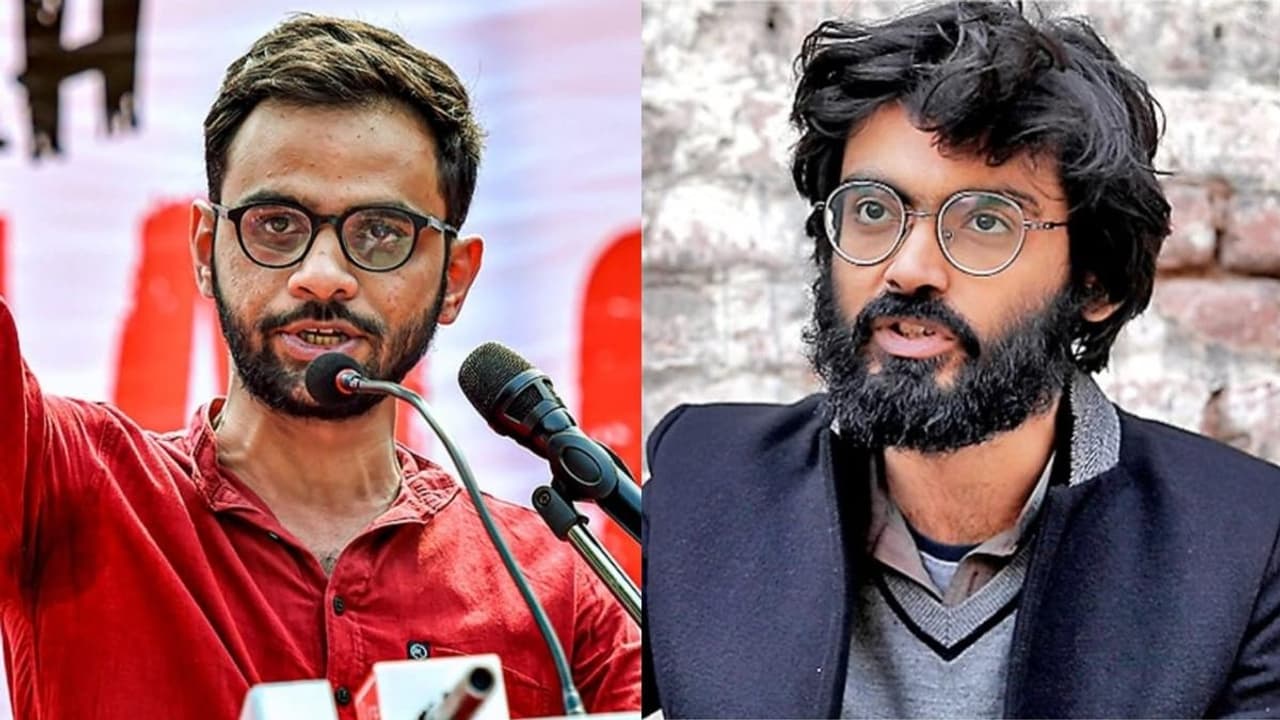Delhi Police on Thursday opposed the bail plea of activists Umar Khalid, Sharjeel Imam and others, and told the Supreme Court that when intellectuals become terrorists, they become “more dangerous” than those working on the ground.
Delhi Police on Thursday opposed the bail plea of activists Umar Khalid, Sharjeel Imam and others, and told the Supreme Court that when intellectuals become terrorists, they become “more dangerous” than those working on the ground. Appearing for the police, Additional Solicitor General S. V. Raju came down heavily on the accused as he opposed their bail pleas linked to the February 2020 Delhi riots. He accused them of deliberately delaying the trial, contending that “they cannot take advantage of it.”
To up the prosecution’s case, Raju presented videos of Sharjeel Imam purportedly delivering “inflammatory speeches” at Chakhand, Jamia, Aligarh and Asansol during the anti-CAA mobilisations in 2019–20, insisting that these speeches were made to stoke unrest ahead of the communal flare-up that left the capital in chaos.
Highlighting Imam’s educational background, Raju remarked that “Nowadays there is a trend that doctors, engineers are not doing their professions but engaging in anti-national activities.” He insisted the demonstrations were far from benign, adding, “It’s not a simple protest. These are violent protests. They are talking about blockades.”
When Justice Aravind Kumar sought clarity on whether these speeches were part of the official chargesheet, Raju confirmed that they were. He then argued that the anti-CAA protests served a far more sinister agenda. According to him, “The ultimate intention is regime change. CAA protests were a red-herring, the real purpose was regime change, economic deprivation and chaos across the country. The riots were deliberately made to coincide with the visit of US President Donald Trump. These so-called intellectuals are more dangerous than the ground-level terrorists.”
Delhi 2020 riots
Khalid, Imam, Gulfisha Fatima, Meeran Haider and Rehman are facing stringent charges under the UAPA and provisions of the erstwhile IPC for allegedly orchestrating the conspiracy behind the 2020 riots, which claimed 53 lives and left more than 700 injured. The violence erupted amid nationwide outrage over the Citizenship Amendment Act and the proposed National Register of Citizens.
Earlier, Solicitor General Tushar Mehta had also opposed the accused’s bail petitions, asserting that the riots were “not something spontaneous but an orchestrated, pre-planned, and well-designed attack on the sovereignty of the nation.” He further argued that the alleged conspiracy sought to “divide society on communal lines” and was “not merely an agitation against the Citizenship (Amendment) Act.”
